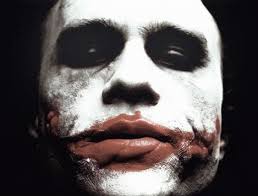The news of Robin Williams’ suicide circulated around the globe, shocking everyone as depression claimed another life lived in the spotlight. The comedic actor, 63, was found dead in his home, classified as ‘suicide due to asphyxia.’
People are shocked because the Robin Williams we saw was dressing up as a nanny, being a talk show host, battling animals generated by a board game, voicing a genie or a penguin and treating patients using humour.
The common denominator in his roles was that he helped people.
We don’t see the reality of such a man. Paparazzi try to give us glimpses, but this only assists the growth of depression.
If this was a downfall unknown to the industry the issue could be placed with the deceased. But the fact is, it isn’t.
Heath Ledger had just finished a role that would earn him an Oscar. Reports are that he didn’t commit suicide, but the combination and quantity of drugs in his system suggests he was not a well man.
Many closest to him believe playing The Joker, the deranged clown prince of Gotham, took its toll and became part of his mind. His performance was unlike anything ever seen, and remains the best example of acting I have watched. But the fact is Ledger, who was only 28 at the time, always appeared nervous in interviews and didn’t enjoy the attention of fame. He had multiple violent confrontations with the paparazzi.
Michael Jackson, the king of pop, died in similar circumstances; with a cocktail of drugs. Many blame the administers of the pills, but you’ve got to ask the question; why do they need the pills in the first place?
We are selfish when it comes to artists. We use their movies, music or books to escape our own issues, but as artists they can’t follow the same path. They turn to the next options of escapism; drugs, or ultimately suicide. It’s a harsh world.
Philip Seymour Hoffman was found with a syringe in his arm. This wasn’t a prescribed pill; this was heroin. He was a much more dramatic character than the previously mentioned and was described by The New York Times as perhaps the most ambitious actor of his generation. Ambition succumbed to escapism.
The list goes on.
Kurt Cobain had difficulty coping with fame and pressure. At the age of 27, with the musical world at his feet, he killed himself. A gun was pointed at his chin and heroin and other drugs were found in his system.
Marilyn Monroe died of an overdose of barbiturates. She often said ‘I don’t want to live’ and ‘I think I’m going crazy’ but nobody took these words seriously enough to help her. Despite the nature of her life, she remains one of the most idolised women of all time.
Ernest Hemingway is considered in some corners as the greatest American writer. He shot himself in the head with a shotgun after suffering through depression for the majority of his professional life.
One aspect shines above all else. They will be remembered through their contributions to a society and culture that others decay. We can listen to their albums or watch their movies whenever we want, and hear the voices and see the talent that won them such high acclaim. And this comforts us when a favourite actor or musician dies.
But what can we do to help them, to ensure there is a support system other than prescriptions that eventually lead to illegal substances or suicide?
They say the loneliest people are the kindest and the saddest people smile the brightest. The most damaged people are the wisest. All because they do not wish to see anyone else suffer the way they do. It’s an interesting quote, and I’m not quite sure of its origin. It demonstrates how these people were perceived; the brightest in the pack.
While it may be wrong for a journalist to say this, it’s the truth; don’t encourage the invasion on the privacy of your favourite artists, or any artists for that matter. A horde of fans charging from across the street with excitement may sound like a dream; it isn’t for the famous, it’s a nightmare.
The fans expect a character, they want to meet the person who won the Oscar or saved a nation or conquered a war or destroyed a villain. They want to meet the energetic lead singer on a stage who performs to thousands. But that isn’t the person you’re chasing. We don’t know anything about the lives of the artists, and if we really want to help them maybe it’s best to allow privacy.
They’re lonely, because when an entertainer is struggling, everyone turns to the next one.
Yet they wear that painted smile.
Chris Sutton









